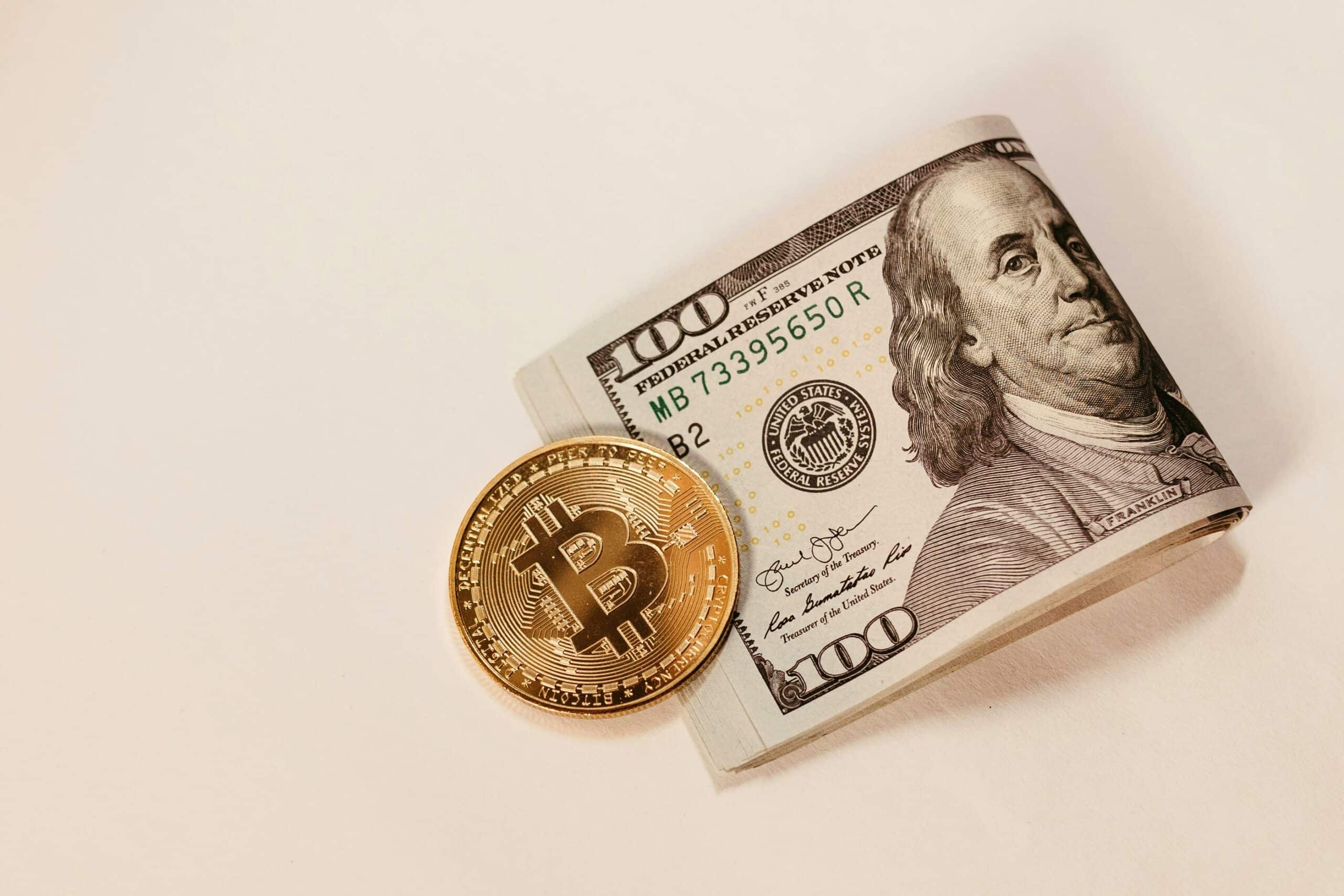Table of Contents
Introduction
In the dynamic and often unpredictable world of digital currencies, Bitcoin has emerged as a trailblazer, captivating the minds and wallets of investors across the globe. Amidst its fluctuating value and media buzz, the ability to convert Bitcoin into traditional currency remains a vital skill for digital asset holders. This comprehensive guide is designed to demystify the process of cashing out Bitcoin, providing you with the knowledge to smoothly transition from virtual coins to real-world cash.
Understanding the Basics
‘Cashing out’ is the colloquial term for transforming Bitcoin into fiat currency—government-backed legal tender like the US dollar or the Euro. This process is essential for those looking to use their digital investments for tangible purchases or services. Unlike the decentralized nature of Bitcoin, fiat currencies are regulated by financial institutions, offering a different level of stability and widespread acceptance.
Preparing to Cash Out
The realm of cryptocurrencies is not without its risks, and security should be your top priority. Before initiating a cash-out transaction, confirm that your Bitcoin is secured in a reputable wallet. Additionally, complete all necessary identity checks on your chosen exchange platform to ensure a seamless process. The timing of your cash-out is also crucial; monitor market trends to sell at an advantageous time, potentially maximizing your returns.
Different Methods of Cashing Out Bitcoin
In the digital age, where Bitcoin has become a significant asset, knowing how to convert it into cash is essential. Here are some of the most popular methods:
Third-party Exchanges
Third-party exchanges like Coinbase and Kraken are the go-to platforms for many when it comes to converting Bitcoin into fiat currency. These platforms are known for their ease of use, security, and quick transaction times. Users can deposit their Bitcoin into the exchange and then request a fiat currency withdrawal, typically through a bank transfer. It’s important to note that you’ll need to withdraw to the same bank account that you deposited with to comply with anti-money laundering regulations.
Peer-to-Peer Transactions
For those seeking more control over their transactions, peer-to-peer platforms like LocalBitcoins offer a direct trade avenue. This method allows users to set their own prices and choose from a variety of payment methods. It’s a more hands-on approach and can sometimes offer better rates than centralized exchanges.
Bitcoin ATMs
Bitcoin ATMs are a convenient way to convert Bitcoin into cash. These kiosks are located worldwide and provide an instant service, albeit with higher transaction fees. They are a good option for small amounts and offer the privacy that some users prefer.
Crypto Debit Cards
Crypto debit cards are a bridge between the digital and traditional finance worlds. Services like the BitPay Card allow users to spend their Bitcoin anywhere that accepts debit cards. The conversion is done at the point of sale, making it a seamless process for the user.
Online Brokers
Some online brokers now allow crypto trading and cashing out. If you purchased your Bitcoin on platforms like Robinhood or eToro, you could quickly exchange your crypto for cash within the same platform. However, these services typically do not allow you to transfer crypto into the brokerage from outside sources.
Money Transfer Apps
Certain money transfer apps have started to integrate Bitcoin transactions, allowing users to sell their Bitcoin within the app and withdraw the cash to their bank accounts. This method is convenient for users who already utilize these apps for money transfers.
Spending at Crypto-Friendly Businesses
An emerging trend is the ability to spend Bitcoin directly at businesses that accept cryptocurrency. This method bypasses the need to cash out, as you can directly use Bitcoin for purchases, though it’s limited by the number of businesses that accept Bitcoin payments.
Additional Considerations
When choosing a method to cash out your Bitcoin, consider factors like transaction fees, withdrawal limits, and processing times. Each method has its own set of pros and cons, and what works best for one person may not be ideal for another. Always prioritize security and ensure that you’re using reputable services to handle your transactions.

Step-by-Step Guide to Cashing Out Bitcoin Through an Exchange
Cashing out Bitcoin through an exchange is a popular method due to its convenience and security. Here’s an expanded step-by-step guide to help you navigate the process:
1. Choose a Reputable Exchange
Select an exchange that is known for its reliability and security. Look for exchanges that have a strong track record and positive user reviews.
2. Register and Verify Your Account
Create an account on the exchange by providing your email address and creating a password. You’ll need to verify your identity by submitting the required documents, which may include a government-issued ID and proof of address.
3. Secure Your Account
Enable two-factor authentication (2FA) for an added layer of security. This will help protect your account from unauthorized access.
4. Deposit Bitcoin into Your Exchange Wallet
Transfer Bitcoin from your personal wallet to your exchange wallet. Make sure to double-check the deposit address before sending your Bitcoin.
5. Place a Sell Order
Once your Bitcoin is in your exchange wallet, place a sell order. You can choose a market order for an immediate sale at the current market price or set a limit order to sell when the price reaches a certain point.
6. Sell Your Bitcoin for Fiat Currency
After placing your sell order, the exchange will match it with a buyer. This process can be instantaneous or may take some time depending on market conditions and the type of order you placed.
7. Withdraw Your Funds
Once the sale is complete, you can withdraw your funds. Choose your preferred withdrawal method, such as a bank transfer or PayPal. Keep in mind that there might be withdrawal fees and limits.
8. Report the Transaction for Tax Purposes
Remember to keep records of your sale for tax purposes. Depending on your jurisdiction, you may need to report capital gains on your Bitcoin sales.
9. Monitor the Transaction
Keep an eye on the transaction until the funds are successfully transferred to your account. If there are any issues, contact the exchange’s customer support for assistance.
By following these detailed steps, you can cash out your Bitcoin in a secure and efficient manner. Always stay informed about the latest exchange rates and market trends to maximize your returns from the sale of your digital assets.
Receiving Your Funds
After successfully selling your Bitcoin, the next step is to receive your funds. You have several options:
- Direct Bank Transfer: This is one of the most common methods. The funds are directly transferred to your bank account, which can take a few days depending on your bank’s processing times.
- PayPal: For a quicker transaction, PayPal is a viable option. However, be aware of potential fees that may apply.
- Cash Deposit: Some exchanges offer the option to receive a cash deposit at supported banks or financial institutions.
Each method has its own processing times and potential fees, so it’s important to choose the one that best fits your needs.
Legal and Tax Considerations
Cashing out Bitcoin involves more than just financial transactions; there are legal and tax implications as well:
- Regulations: The legal landscape for cryptocurrencies can vary greatly from one region to another. It’s essential to understand the laws and regulations regarding cryptocurrency in your area to ensure you’re in compliance.
- Taxes: Many countries view profits from Bitcoin sales as taxable income. You’ll need to report any capital gains on your tax returns, so keep detailed records of all your transactions.
Cashing out Bitcoin
Cashing out Bitcoin may seem daunting, but it’s a straightforward process once you’re familiar with the steps involved. With this guide, you’re equipped to convert your digital currency into cash. As the digital currency landscape continues to evolve, staying informed is key to maximizing your Bitcoin investments. Remember, knowledge is power, especially when it comes to navigating the financial nuances of cryptocurrencies.














